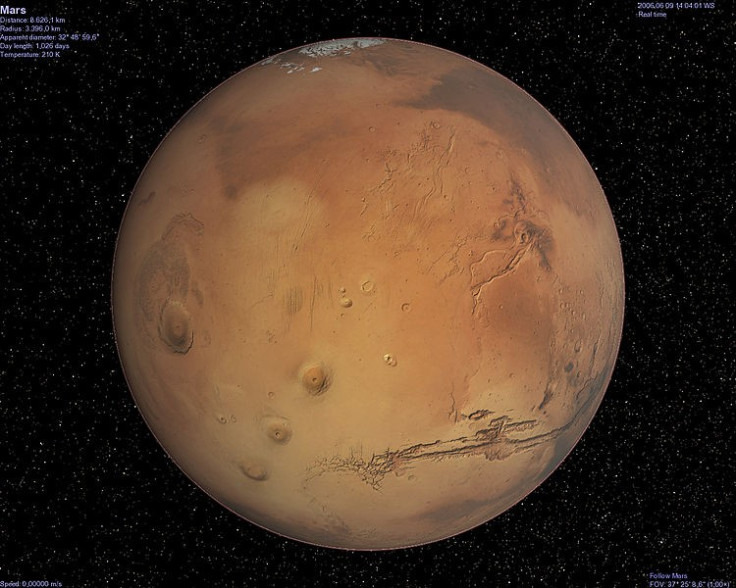Tunnels Leading Through Meteorite Interior 'Point to Life on Mars'

Tunnels going through a Martian meteorite coupled with tiny blobs of carbon rich minerals suggest life existed on Mars hundreds of millions of years ago.
According to a report on NBC News, a study published in the journal Astrobiology has reignited the debate over when and if life has ever existed on the Red Planet.
The study, led by Lauren White from Nasa's Jet Propulsion Laboratory, describes how microscopic tunnels going through the interior of a meteorite from Mars and the blobs of carbon suggest microbial weathering.
"We're convinced that this is another one of the important data points that is going toward answering the big question: Was there life on Mars?" Everett Gibson, a researcher at NASA's Johnson Space Center who was involved in the study told NBC.
Researchers say the structures suggest weathering from biological processes. While they note they cannot rule out the possibility the blobs and tunnels come from non-biological processes, they are highly suggestive of life.

Their report harks back to a similar study published in 1996 in which scientists said wormlike features of a Martian meteorite supported the view of life on Mars.
Inspired by this work, White said: "Whatever these are, they definitely came from Mars."
Chris McKay, from NASA's Ames Research Centre, said: "I don't think the science community will find 'textural and compositional similarities' compelling enough to be proof of a biological origin. We have our critics, and that's what science is all about."
Explaining the next steps of research, Gibson added: "We have to go to the next step of going in there and tearing these carbon molecules apart."
Nasa scientists are currently looking for evidence of life on Mars with their rovers, however, they will not have conclusive evidence until samples are returned to Earth, which could be more than 10 years away.
"Until that time, we need to use the best thing we have, and that's the meteorites from Mars," Gibson said.
© Copyright IBTimes 2025. All rights reserved.






















